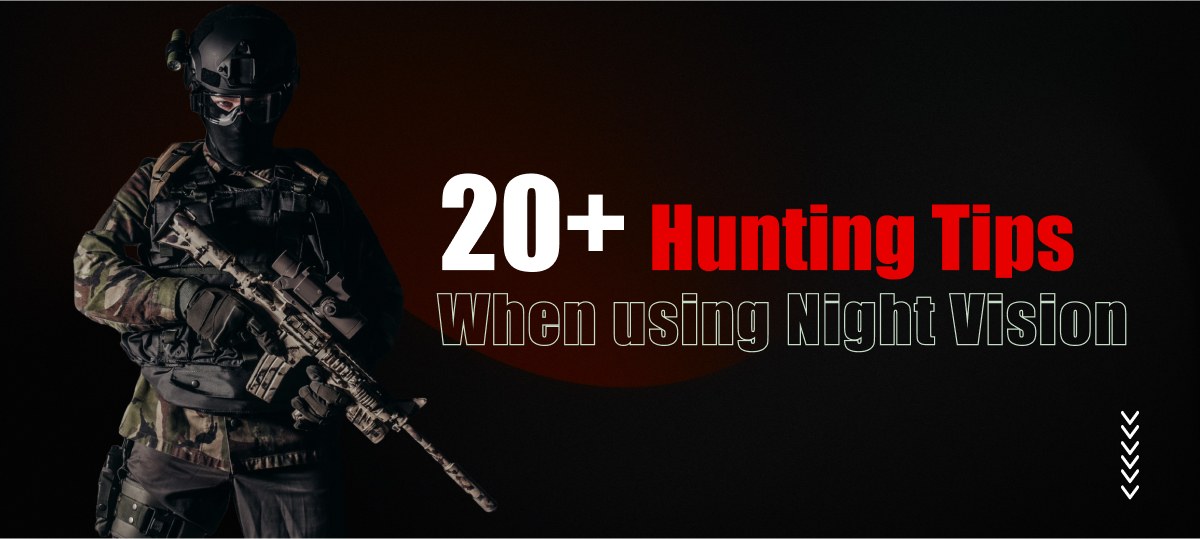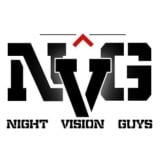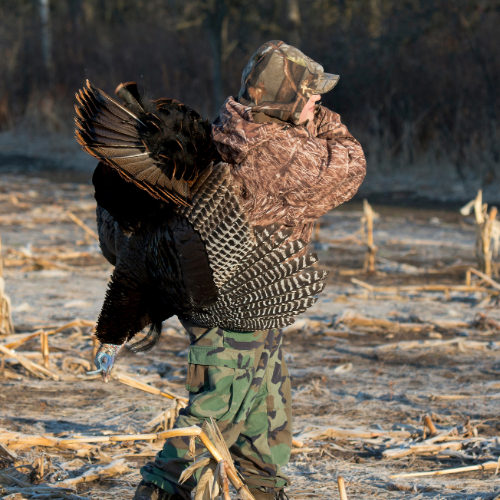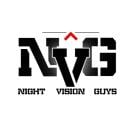20+ Hunting Tips When Using Night Vision

Night hunting has never been more in vogue. It's a good thing then that night vision technology has transformed the sport for hunters everywhere. Even so, hunting at night is very different from daytime hunting. Technology such as night vision goggles enables hunters to utilize an advanced skill set. As the technology changes, so does the sport.
Whether you are stalking deer or waiting for a turkey, night vision lets you operate in complete darkness while maintaining your visual acuity.
Keep reading for our tips that help you optimize your hunting technique using night vision..
Equipment Setup and Preparation
Before you begin hunting at night, you need to prepare your equipment. Taking caution before your hunt helps make the process smooth and successful.
Calibrate Your Equipment
Before you prepare to use night vision, it's essential that you calibrate your gear: the goggles and scopes. You must attune them to the ambient light conditions around you. You also need to check your battery levels and pack some spares for out in the field.
Familiarize With the Terrain
As with any hunt, it is integral that you know the lay of the land. It is much more crucial when night hunting as the visibility will be low even with NVGs. Take a stock of your hunting environment during the day. Note any obstacles or hazards that you won't see clearly in the dark.
Understand IR Illumination
Infrared illuminators can help you in the most lowly lit environments. They flash infrared light that night vision devices can detect and enhance a hunter's visibility. Just note, however, that some animals, such as deer, are capable of sensing some infrared light wavelengths. That means that you potentially may be warning them about your presence.
Minimize spooking game by using IR only when necessary. Rely on natural sources, such as moonlight, whenever possible. When IR must be used, minimize the possibility of detection by staying downwind and out of line-of-sight.
Choose Clothing and Gear
Like in daytime hunting, successful night hunting requires the right attire and equipment. Since animals rely more on smell rather than vision at night, wear scent-blocking clothing. When choosing materials to make up your hunting ensemble, go for light-weight and quiet fabrics to reduce noise.
Deer Hunting Tips with Night Vision
Night hunting for deer is particularly popular in some areas. The following tips will help hunters increase their success rates:
- Movement and Stalking: Deer can easily spot motion, even at night. Be as still as possible. But when you do need to move, use controlled slow movements. Keep your distance when using night vision. Moving too fast degrades clarity.
- Avoid Overusing IR: Do not be so dependent on the infrared illuminator. You have to use it frugally since deer may detect some wavelengths of light. Too much IR will spook them. Use natural light like the moon whenever possible.
- Ideal Setup Locations: Hunters should set up in ideal hunting locations like near water sources or feeding areas – anywhere that deer are likely to gather at night. At this stage, it’s vital you choose a position with good cover and a wind direction that will help you avoid detection.
- Shooting Techniques: Night vision can limit your depth perception, so you might need to adjust your shooting techniques. Practice shooting at night using the equipment. When hunting, aim at vital areas like the chest or shoulder for a clean, human kill.
- Tracking the Deer Post-Shoot: Obviously, it's difficult to track a deer at night that's been shot. Blood trails sometimes won't appear through the night vision goggles. A thermal scope may be useful for recovery of the game.
Turkey Hunting Tips with Night Vision
Hunting turkeys at night requires different strategies due to the birds’ unique behaviors. When you’re using night vision to hunt turkey, bear in mind the following:
- Roosting Behavior: Turkeys roost in trees at night, so they are less likely to be moving around. You can use this to your advantage by locating roosting spots in the evening, then quietly setting up nearby.
- Silent Approaches: Turkeys rely heavily on hearing, so hunters must move silently. Make sure you wear quiet clothing and boots. Be mindful of any noise made by adjusting your night vision equipment.
- Optics Choice: Rather than NVGs, night vision scopes are often more useful when hunting turkeys because of the need for precise aiming. To improve accuracy, give yourself plenty of practice with the equipment.
- Calling Techniques: Turkey calls are still effective at night, however they should be used sparingly. If you over-call turkeys, they can grow wary – especially in low-light conditions when they feel vulnerable.
Tips for Buck Hunting with Night Vision
Bucks can be far more elusive and cautious, especially at night. The following outlines some specific strategies tailored for buck hunting at night:
- Identifying Buck vs. Doe: Be sure to pay attention to the type of deer you are shooting. Night vision makes it difficult to distinguish between bucks and does at a distance. Try focusing on antler shape and size, things you still can detect through high-quality scopes.
- Time of Night: Bucks tend to be more active in the early hours after sunset, as well as just before sunrise. Plan your hunting agenda accordingly to increase your chances of bagging a buck.
- Tracking Wounded Bucks: Just like with other deer, tracking a buck that’s been shot in the dark can be difficult. Use a thermal imaging tool to quickly locate the downed animal.
Ethical and Safety Considerations
Safety and ethical considerations are always a factor, more so when night hunting. As you prepare for your nighttime hunting experience, keep in mind these precautions:
Be Aware of Your Surroundings
Know your surroundings; be mindful of hunters around you, homes in the neighborhood, and cattle. Shooting in low light conditions will automatically increase chances of accidents. Knowing your surroundings is paramount in safety for night hunting.
Legal Restrictions
Many areas have strict laws concerning hunting at night. Check with the local ordinances to make sure you are within the time limits and game restrictions. Above all, check to see if night hunting is even legal at all.
Respect the Game
Night vision gives a hunter quite the advantage. That doesn't mean you should just forget about ethical hunting practices, though. Be certain that you are making clean shots so the animal does not suffer.
Overcoming Common Night Vision Challenges
Even though the night vision technology has some considerable advantages, there are still challenges hunters must overcome. You can begin by understanding some common night vision obstacles and addressing them.
Sometimes, night vision can distort your depth perception. That makes it tougher to judge distances accurately. Try practicing with your night vision equipment before you hunt. You'll get used to the limitations, and you'll learn to use landmarks or rangefinders to gauge distance.
Be mindful of the tendency to develop tunnel vision. Some NVG and some scopes tend to restrict your field of view. That, in turn, makes it difficult to sustain situational awareness. Instead, scan the area in slow, deliberate movements so you don't miss any motion outside your immediate focus.
Be prepared for fog or moisture on your lenses. On particularly cold nights or in humid conditions, your night vision lenses will gather moisture. Proper lens-cleaning tools or anti-fog wipes will keep your lenses clear without scratching them.
The Importance of Practicing with Night Vision Gear
Throughout the article, we’ve emphasized the need to practice using your night vision accessories.
You might be wondering if we have any tips for practicing with night vision equipment. When you’re preparing to practice, remember a few more tips.
Know your equipment. Take some time getting used to your NVGs or scopes while being in different environments. Practice targeting, scanning, and shooting in complete darkness for precision and confidence.
Practice and test equipment in all conditions. You have to practice testing your gear under different lighting conditions, such as moonlit and pitch-black nights. In turn, you will better understand how the gear works and perform any necessary adjustments.
Try to simulate real hunting situations. Some of the best practice is simulating real hunting situations. Practice with your night vision equipment while navigating through the woods, aiming at moving targets, or simply staying still for extended periods of time.
Maintenance and Care for Night Vision Equipment
Proper care and maintenance of night vision equipment are essential for its longevity and optimal performance during hunts.
1. Cleaning the Lenses
Dirt, dust, and fingerprints can impede clarity. Clean lenses with a soft, microfiber cloth often. Avoid harsh chemicals that can further damage the coating.
2. Battery Management
Be very aware of your battery life – especially on longer hunts. Always pack extra batteries in a pack or vest, and change them out before they die so you won't drop visibility at just the wrong moment.
3. Storage
Keep the night vision equipment cool and dry, as it has sensitive components that may get damaged in conditions of moisture, extreme temperature, or from the direct rays of the sun. You can cover it in a protective case to avoid physical damage while moving your gear around. Additionally, remove the battery (s) when storing the unit.
4. Periodic Inspections
Periodically inspect your gear for any signs of wear and tear, such as loose connections or degraded rubber seals. Early detection can help to avoid problems with equipment failure in the field.
Hunting with Night Vision Requires Skill and Preparation
Hunting with night vision technology will usher you into an unparalleled outdoor adventure. However, it requires considerable preparation, ethical hunting practices, and of course equipment to boot.
With our tips in mind, you're that much closer to preparing for a safe night hunt. Browse the many options for night vision gear at Night Vision Guys, and take your next hunt to a whole new level.



















